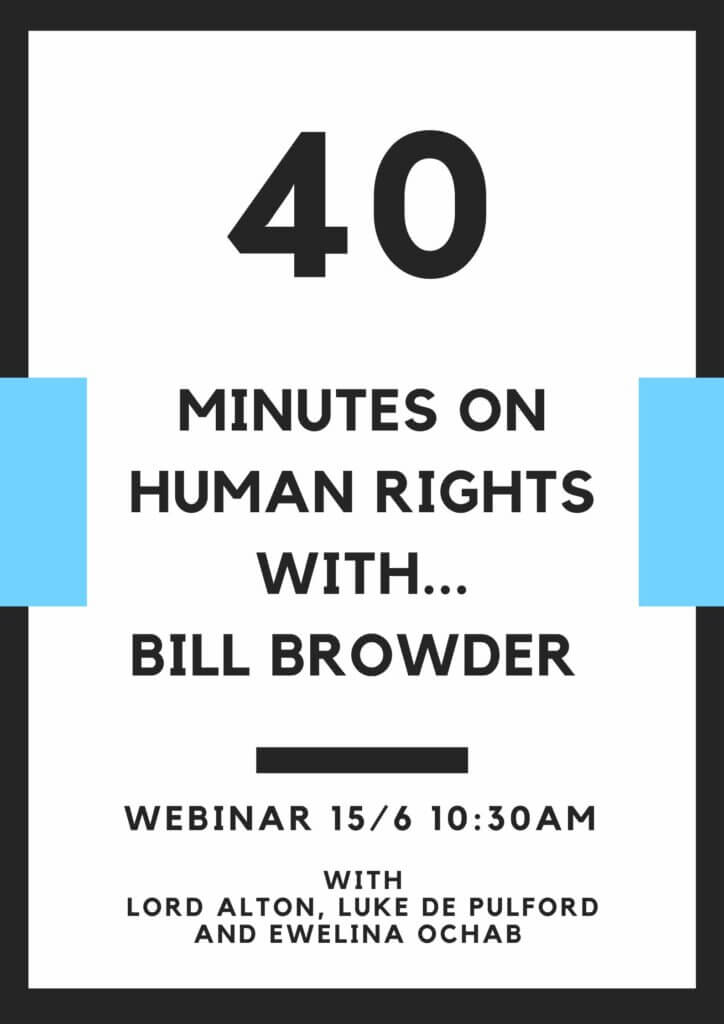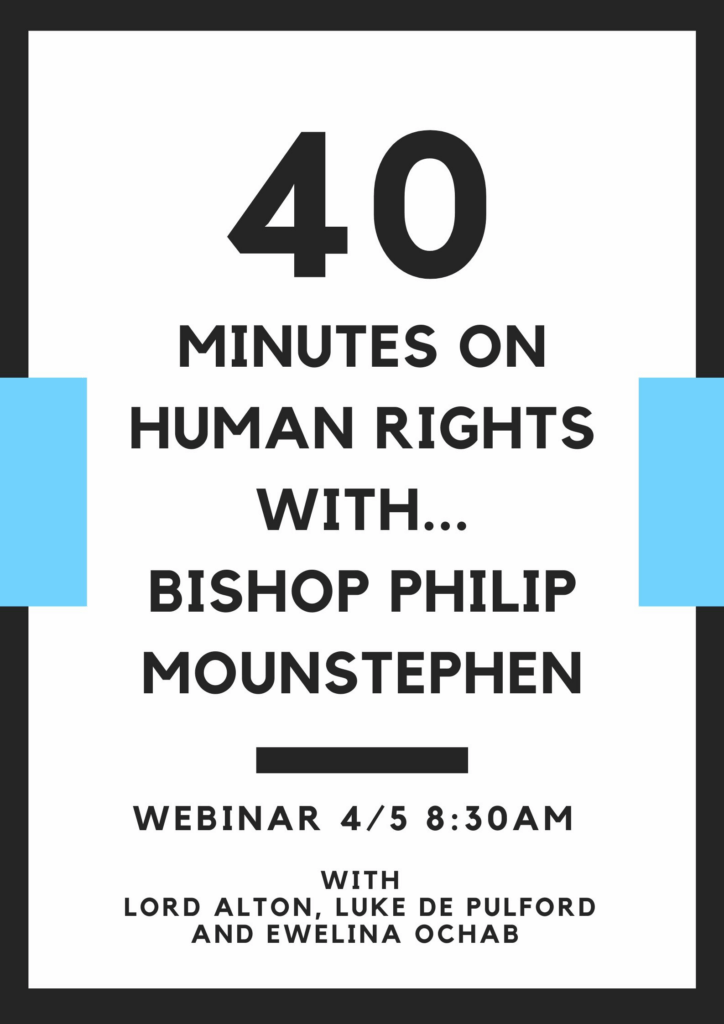Source: Hansard
Baroness Falkner of Margravine
To ask Her Majesty’s Government what plans they have to reassess their relationship with the government of China.
The Minister of State, Foreign and Commonwealth Office and Department for International Development (Lord Ahmad of Wimbledon) (Con)
My Lords, as I updated the House on 17 June, our approach is already rooted in our values and strategic interests. When engaging China, we stand up for our principles, including international law, human rights and national security. We want a mature relationship, which means collaborating where our interests align, being clear where they do not and working to resolve our differences.
Baroness Falkner of Margravine (Non-Afl)
My Lords, first, I pay tribute to Sir Simon McDonald as he stands down from the FCO. He has been a remarkable leader and an exceptional head of our foreign service, and I wish him well in his future roles.
There is a pattern in Chinese policy, which is increasingly assertive towards countries which do not bend to its will—take the experience of Australia, Sweden, Norway, France or even ours over Hong Kong. Does the Minister agree that as the international environment changes, the UK, too, needs to be clearer with China about engaging constructively where we can but taking a clear and united stand with our allies where our interests diverge from China’s? History tells us that statecraft and ambiguity are not always the best bedfellows.
Lord Ahmad of Wimbledon
My Lords, first, I fully align myself with the sentiments the noble Baroness expressed about Sir Simon. He had a very distinguished career in the Foreign Office. On a personal level, he has been an excellent Permanent Under-Secretary and guided me through my early days as a Minister and continues to do so to this date.
On the noble Baroness’s point about the approach of having a balanced relationship with China, calling out Chinese activities, whether it is on Hong Kong or the situation as we see it in Shenzhen, we have done so. I agree with her comments in that respect.
The Lord Bishop of Coventry
My Lords, with Christian pastors made to preach on patriotism as a condition for restoring worship after Covid-19, the new ethnic unity law to sinicize Tibetan Buddhism, and reports of birth control forced on Uighur Muslims, does the Minister accept that firm, co-ordinated international effort is required to challenge Beijing’s abuses of its religious minorities and that such human rights abuses should not be overlooked in our trade negotiations with China?
Lord Ahmad of Wimbledon
My Lords, I agree with the right reverend Prelate. As he will be aware, in international fora such as the 43rd Human Rights Council in March, we have made our position very clear. He also raises the importance of working with international partners in this respect, and we have done so on the situation with the Uighurs, as we have with the situation in Hong Kong.
Lord Hayward (Con) [V]
My Lords, there is a litany of cases, whether concerning international relations or human rights, where China’s contribution to the world is going backwards. In the past 12 months, is there any aspect of international relations with the Chinese that has actually got better rather than worse?
Lord Ahmad of Wimbledon
My Lords, in the current pandemic, I have deliberately used the phrase “the interdependency of humanity” when we have seen the response on Covid-19. We have worked very closely with China, particularly on the procurement of equipment such as PPE. We continue to work closely as we prepare for COP 26 next November. Both countries, the United Kingdom and China, will be hosting international events in this respect, and collaboration is important.
Lord Boyce (CB) [V]
My Lords, while agreeing on the need to establish a sound relationship with China, does the Minister agree that it is of the utmost importance that we continue to exercise most robustly, through the Royal Navy among others, our right to freedom of navigation on the high seas in those waters of the South China Sea illegally claimed by China to be its own, in contravention of the United Nations Convention on the Law of the Sea? Incidentally, that contravention was once again highlighted last Friday at the south-east Asian leaders conference.
Lord Ahmad of Wimbledon
My Lords, I agree with the noble and gallant Lord. Our position on UNCLOS and the South China Sea, working with other allies in the region, is very clear. We call on China to respect international law in this respect.
Baroness Warwick of Undercliffe (Lab) [V]
My Lords, the approval by China’s National People’s Congress of the new national security laws for Hong Kong was immediately followed by worldwide condemnation. However, the Guardian reported that the National People’s Congress standing committee is currently holding a three-day deliberation and the law is expected to pass tomorrow. So China is clearly not standing down. Given the Prime Minister’s offer on 3 June that any Hong Kong citizen eligible to apply for a British National Overseas passport would have the right to live and work in the UK—although that has not been fully corroborated by our Foreign Secretary—how many might qualify for visas and how many will be allowed to claim full citizenship?
Lord Ahmad of Wimbledon
My Lords, the noble Baroness is quite right. The standing committee is currently debating this very issue and the decision is awaited. On BNOs, the Prime Minister has been very clear. I am sure that the noble Baroness also saw his article at the beginning of this month, where he made it clear that anyone eligible for BNO status—which is the larger number of more than 2.9 million people—would qualify for citizenship.
Baroness Northover (LD) [V]
My Lords, with which countries is the United Kingdom working to counter China’s threats to Hong Kong, Taiwan in the South China Sea and elsewhere, and how is that progressing?
Lord Ahmad of Wimbledon
My Lords, as the noble Baroness will be aware—I am sure she follows this—we have worked very closely with our European allies, including the likes of Germany and France. Allies remain allies: the noble Lord may not agree with me, but they do. We will continue to work also with others in the region. An earlier question pointed at the South China Sea. We work with other key partners, including the likes of Australia.
Lord Robathan (Con) [V]
My Lords, we are now faced with an authoritarian and expansionist regime in China, which is buying up Africa and elsewhere, and threatening our ally Australia, as we heard, and others. It is threatening Australia for the temerity of asking for an independent inquiry into Covid-19. We have to live with China, but we need to sup with a very long spoon. Will Her Majesty’s Government stand resolute with Australia, Hong Kong and others against the threatening and bullying behaviour of the Chinese regime?
Lord Ahmad of Wimbledon
My Lords, as my noble friend will know, we are very clear-eyed in our relationship with China. He points out the important relationship that we have with the likes of Australia. We stand with Australia. It is a key partner through security and other, wider strategic interests in the region. He also mentioned Hong Kong. I have made the Government’s position on that quite clear.
Lord Alton of Liverpool (CB)
My Lords, following the question asked by the noble Baroness, Lady Warwick, what are we doing to support the seven United Nations special rapporteurs who last week expressed serious concern that Beijing’s new security law fails to comply with international human rights law? Do we regard that new security law as a formal breach of the Sino-British joint declaration?
Lord Ahmad of Wimbledon
My Lords, in answer to the noble Lord’s second question, we have made our position quite clear: it is a breach of that agreement, as well as a basic breach of Hong Kong’s own laws. On working in the UN and supporting what it is doing, he will be aware that we raised the issue at the UN Security Council on 29 May and continue to work with international partners on the issue of Hong Kong.
Lord Collins of Highbury (Lab)
My Lords, the final report of the independent tribunal into forced organ harvesting in China described the practice as a crime against humanity. Last July, the Minister shared my concern that the evidence on which the WHO cleared China was based on self-assessment by China. What is the Government’s assessment now of the tribunal’s full report and what has been the result of the United Kingdom’s representations to both the WHO and the Chinese authorities?
Lord Ahmad of Wimbledon
My Lords, the noble Lord is quite correct: the final report was issued on 1 March, and we noted that the testimonies added to the growing body of evidence about the disturbing situation that the Falun Gong practitioners, Uighurs and other minorities are facing. The Government’s position remains that the practice of systematic state-sponsored organ harvesting would constitute a serious violation of human rights, and I assure the noble Lord that we regularly raise these concerns with China. We have also consulted the World Health Organization in both Geneva and Beijing, although it maintains its view that China is implementing an ethical system. We will continue to keep this policy under review.
Lord Howell of Guildford (Con) [V]
My Lords, I fully agree that we should be both fearful of and careful about Chinese bullying methods, of course, but if we are thinking about Hong Kong’s real, longer-term interests and prosperity, should we not be a bit hesitant about equating continued mindless street violence with the causes of freedom and democracy?
Lord Ahmad of Wimbledon
My Lords, any violence is condemned by us; I am sure that all noble Lords share that sentiment. There are rights to protest, which should be respected, but anyone protesting should observe the rule of law.
The Deputy Speaker (Lord Bates) (Con)
My Lords, the time allowed for this Question has now elapsed. That concludes the Hybrid Sitting on Oral Questions.


